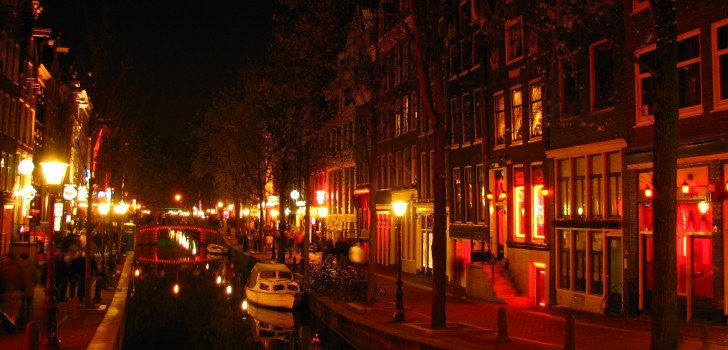Business operators in Amsterdam’s infamous red light district are now being required to communicate with sex workers in the language chosen by the workers. The mandate is being put into place in order to protect the sex workers from being abused.
Some brothel owners have been refused permission to continue operations because they were unable to speak the languages of their workers.
Brothels are considered to be legal in the Netherlands, but they must be locally licensed.
Authorities are making the change in regulation in order to help prevent cases of human trafficking and sexual abuse.
The new laws have been established throughout the European Union by the European Court of Justice. However, they are most applicable to the city of Amsterdam in the Netherlands, which is well-known for its prominent red light district and coffee shops.
The European Court of Justice said in a statement, “The court considers it is possible to require that a brothel owner be able to communicate in the same language with the prostitutes who work there.”
The ruling comes after officials in Amsterdam did not allow new permits to be provided to the owner of a brothel who rents windows to prostitutes in the city. The court responded by stating that the decision was justified because the brothel owner was unable to speak Hungarian or Bulgarian, which are the languages used by the sex workers.
As a result of being unable to speak their languages, the owner was unable to ask them whether or not they had been trafficked or forced to sell sex. This lack of clarity made the situation illegal.
The owner of the brothel wanted to use interpreters or online translators to ask the prostitutes of their statuses, and he claimed that the ruling was discriminatory and inappropriate. However, the court rejected this claim, stating that it was not in the interest of the public.
The Netherlands and Germany legalized prostitution in 2002. In the Netherlands, sex workers are required to register at the chamber of commerce and pay taxes.
However, in recent years, officials have tried to place restrictions on the practice in order to combat the human trafficking and organized crime that came with the trade.
Reports show that about 75% of the women involved in the sex industry of the city are foreign, entering the country from Eastern Europe, Africa, and Asia.
Stay Connected